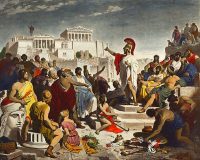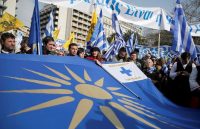
Who Is Playing Politics With the Port of Piraeus?
Piraeus, the gritty port city that has provided Athens’s naval and commercial power throughout its tumultuous history, is the theater of a new conflict, one that pits local interests against economic development and a superpower’s global strategy. At least that’s the story that Greece’s dueling politicians are telling.
Greek archaeologists have stalled an investment of more than 612 million euros offered by a Chinese-owned company seeking to revamp and expand Piraeus’s port as part of President Xi Jinping’s Belt and Road Initiative. Early last month, Greece’s Central Archaeological Council, an advisory body, proposed declaring everything within the limits of the ancient city of Piraeus — most of which overlaps with the modern-day port and commercial center — an archaeological site.… Seguir leyendo »











